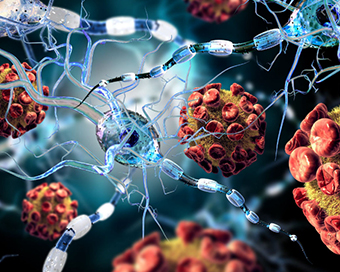Gallery
 PM Modi visit USA
PM Modi visit USA Only the mirror in my washroom and phone gallery see the crazy me : Sara Khan
Only the mirror in my washroom and phone gallery see the crazy me : Sara Khan Karnataka rain fury: Photos of flooded streets, uprooted trees
Karnataka rain fury: Photos of flooded streets, uprooted trees Cannes 2022: Deepika Padukone stuns at the French Riviera in Sabyasachi outfit
Cannes 2022: Deepika Padukone stuns at the French Riviera in Sabyasachi outfit Ranbir Kapoor And Alia Bhatt's Wedding Pics - Sealed With A Kiss
Ranbir Kapoor And Alia Bhatt's Wedding Pics - Sealed With A Kiss Oscars 2022: Every Academy Award Winner
Oscars 2022: Every Academy Award Winner Shane Warne (1969-2022): Australian cricket legend's life in pictures
Shane Warne (1969-2022): Australian cricket legend's life in pictures Photos: What Russia's invasion of Ukraine looks like on the ground
Photos: What Russia's invasion of Ukraine looks like on the ground Lata Mangeshkar (1929-2022): A pictorial tribute to the 'Nightingale of India'
Lata Mangeshkar (1929-2022): A pictorial tribute to the 'Nightingale of India' PM Modi unveils 216-feet tall Statue of Equality in Hyderabad (PHOTOS)
PM Modi unveils 216-feet tall Statue of Equality in Hyderabad (PHOTOS)The Badminton Association of India (BAI) has announced a 14-member-strong India squad for
- Men’s Sr Hockey Nationals to be played in division-based format from April 4
- Mensik denies Djokovic 100th title in Miami final
- KIPG: Son of a vegetable vendor, Bihar’s Jhandu Kumar eyes Worlds, 2028 Paralympics
- Hardik Singh credits hard work and team unity for receiving HI Midfielder of the Year award
- Djokovic, Alcaraz land in same half of Miami draw
SARS-CoV-2 can infect neurons, damage brain tissue: Study Last Updated : 13 Jan 2021 06:32:29 PM IST 
Researchers have discovered that SARS-CoV-2 can directly infect the central nervous system and have begun to unravel some of the virus's effects on brain cells.
The study, that used both mouse and human brain tissue, indicates that SARS-CoV-2 can affect many other organs in the body, including, in some patients, the central nervous system, where infection is associated with a variety of symptoms ranging from headaches and loss of taste and smell to impaired consciousness, delirium, strokes and cerebral haemorrhage."Understanding the full extent of viral invasion is crucial to treating patients, as we begin to try to figure out the long-term consequences of Covid-19, many of which are predicted to involve the central nervous system," said researcher Akiko Iwasaki, a professor at Yale University.For the study, published on Wednesday in the Journal of Experimental Medicine (JEM), the team analysed the ability of SARS-CoV-2 to invade human brain organoids (miniature 3D organs grown in the lab from human stem cells).The researchers found that the virus was able to infect neurons in these organoids and use the neuronal cell machinery to replicate. The virus appears to facilitate its replication by boosting the metabolism of infected cells, while neighbouring, uninfected neurons die as their oxygen supply is reduced.SARS-CoV-2 enters lung cells by binding to a protein called ACE2, but whether this protein is present on the surface of brain cells is unclear.The team determined that the ACE2 protein is, in fact, produced by neurons and that blocking this protein prevents the virus from human brain organoids.SARS-CoV-2 was also able to infect the brains of mice genetically engineered to produce human ACE2, causing dramatic alterations in the brain's blood vessels that could potentially disrupt the organ's oxygen supply, the team said.Central nervous system infection was much more lethal in mice than infections limited to the lungs, they added.The researchers also analysed the brains of three patients who succumbed to Covid-19.SARS-CoV-2 was detected in the cortical neurons of one of these patients, and the infected brain regions were associated with ischemic infarcts in which decreased blood supply causes localized tissue damage and cell death. Microinfarcts were detected in the brain autopsy of all three patients.IANS New York For Latest Updates Please-
Join us on
Follow us on








172.31.16.186







